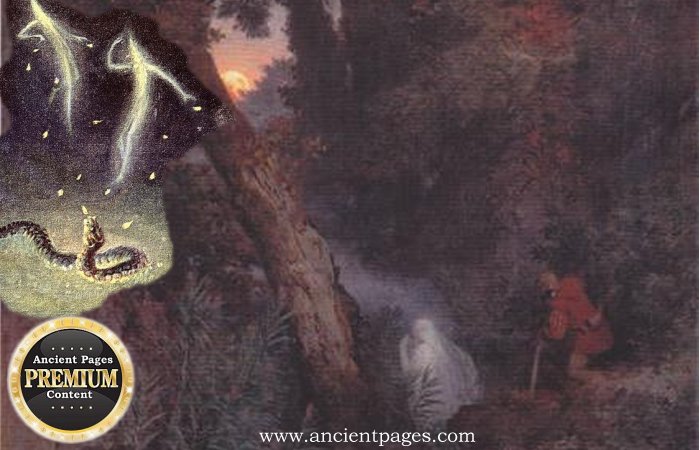Ellen Lloyd – AncientPages.com – The enigmatic will-o’-the-wisp phenomenon has captivated people for centuries. Known in Latin as the “Foolish Flame” and recognized by various names across cultures, travelers have often observed these elusive ghost lights at night. Typically seen hovering over bogs, swamps, or marshes, they have long inspired cautionary tales advising travelers to avoid them and never follow their mysterious glow.
The lights are unsettling due to their seemingly playful nature. They can vanish suddenly only to reappear elsewhere, move away when approached, or even seem to follow observers. Numerous accounts from Europe and North America attest to the widespread observation of this phenomenon.
Efforts to explain the origins of these peculiar ghost lights have been numerous, but finding a rational explanation has proven challenging. Over time, the will-o’-the-wisp has taken on metaphorical significance. The spooky lights are often linked with supernatural realms and spirits in myths, legends, and folklore across cultures. Despite intense scientific scrutiny throughout the eighteenth and nineteenth centuries, the will-o’-the-wisp mystery remains unsolved.
While many scientific theories have attempted to demystify this occurrence, none fully account for all aspects of it. Recently, scientists studying historical observations noticed intriguing patterns leading them toward a potentially groundbreaking theory that might finally illuminate this enduring enigma. Their research journey took an unexpected turn, leading to surprising discoveries about these eerie lights. Have they perhaps solved this old mystery?
This is a preview of our premium article available only to members of Ancient Pages.
Become a member to read more – Click here
If you are already a member and have logged in to your account, you can access the article here
See also:
Enigma Of The Chime Hours And People Who Can See Beyond The Visible Realm
More From Ancient Pages Library Of Ancient And Unexplained Mysteries











